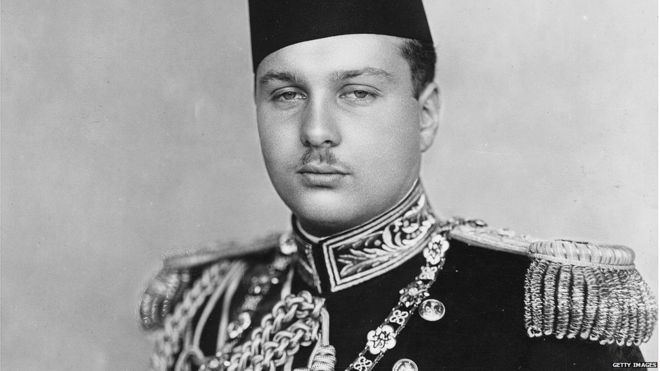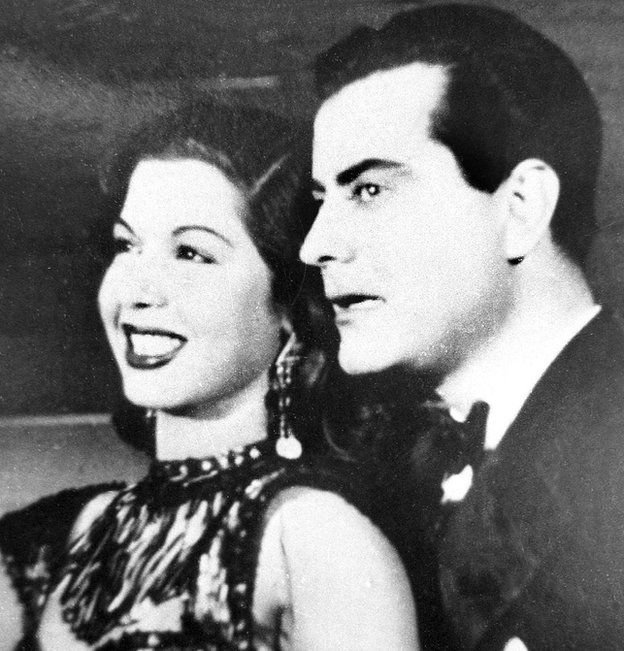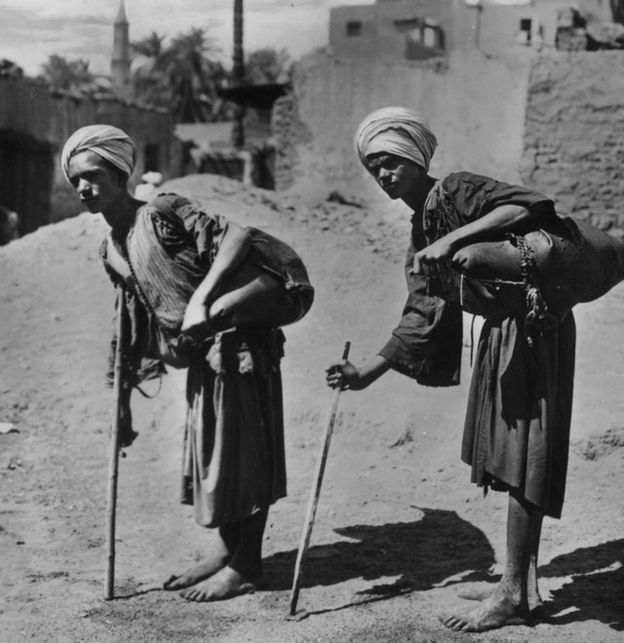Why are some Egyptians pining away for their long-gone king?
- 6 hours ago

Amid the turmoil and unrest of Egypt today, some are reminiscing about life under the country's last monarch - prompting an online debate about how good the "good old days" really were.
"I'm begging King Farouk not to leave Egypt to the army," an Egyptian tweeted recently - quite an odd plea, as Egypt hasn't had a monarch for more than 60 years. But that message, and thousands like it, were shared in a sort of mass historical role play that pushed the phrase "Tweet as if you're in the 1950s" to the top of Egypt's Twitter charts.
Online, many Egyptians were reminiscing about the days of the monarchy. Farouk I took the throne in 1936, aged just 16 years old. At first he was popular, but his playboy lifestyle soon grated on Egyptians, particularly during the hardships of World War II. A British high commissioner of the era described Farouk as "uneducated, lazy, untruthful, capricious, irresponsible and vain, though with a quick superficial intelligence and charm of manner." His unpopularity contributed to the 1952 revolution that established a republic and eventually installed Gamal Abdel Nasser as leader.
But despite his unpopularity at the time, the sentiment towards Farouk I seems to have changed somewhat in the last few years. A Facebook fan page in his namethat was set up in August 2011 has been liked more than 2.2 million times.
"King Farouk was wrongly and unfairly depicted," says Amr Abu Seif, a 40-year-old Egyptian who set up the Facebook page as well as a King Farouk website, which he started in 2007 after he couldn't find any websites dedicated to the Egyptian monarchy.
"I'm very fond of that era," Seif says. "Life was simple and uncomplicated back then."
The beautiful era?

The King Farouk page posts praise-laden articles and evocative stories about the Muhammad Ali dynasty, of which Farouk was the last leader. The page also shares many old black and white pictures of King Farouk with his family and images of quiet streets and elegantly dressed people.
Many Egyptians call the time "the beautiful era" and to some the Farouk years mean glamour, class, religious tolerance and a civilised society. But that idealised image bothers many others.
"We are obsessed with that image of elegance and class but that's not all there was to that era," says Egyptian doctor and blogger Nervana Mahmoud, "People will watch the classical films and look at old pictures that show religious tolerance and freedom for women to wear what they want. But that was just serving a niche class of society. There was also injustice and a big gap between the rich and the poor that we conveniently forget about."

Why now?
Mahmoud believes people are retreating into the past to escape the reality of Egypt's present, where bombings and violence are increasingly common, the economy is ailing, and the political system is in turmoil. But, she says, many forget the hardships of the Farouk era. "It's selective nostalgia," she says. "There are Egyptians who are yearning for that era but they forget that there was a price many Egyptians had to pay.
"Until we stop looking at the past through rose-colored glasses, we won't be able to build our future," she says.
But Seif disagrees. "It's not about politics," he argues. "We don't want to bring back the monarchy rule in Egypt, that would be absurd. We're just reminiscing about how good the old days were, and that's just human nature."
Blog by Mai Noman
Next story: Your comments about online comments

Are comments on news websites dead? Well, judging by reaction to a recent post about their possible demise - no way. READ MORE
You can follow BBC Trending on Twitter @BBCtrending, and find us onFacebook. All our stories are at bbc.com/trending.







No comments:
Post a Comment
Please leave a comment-- or suggestions, particularly of topics and places you'd like to see covered